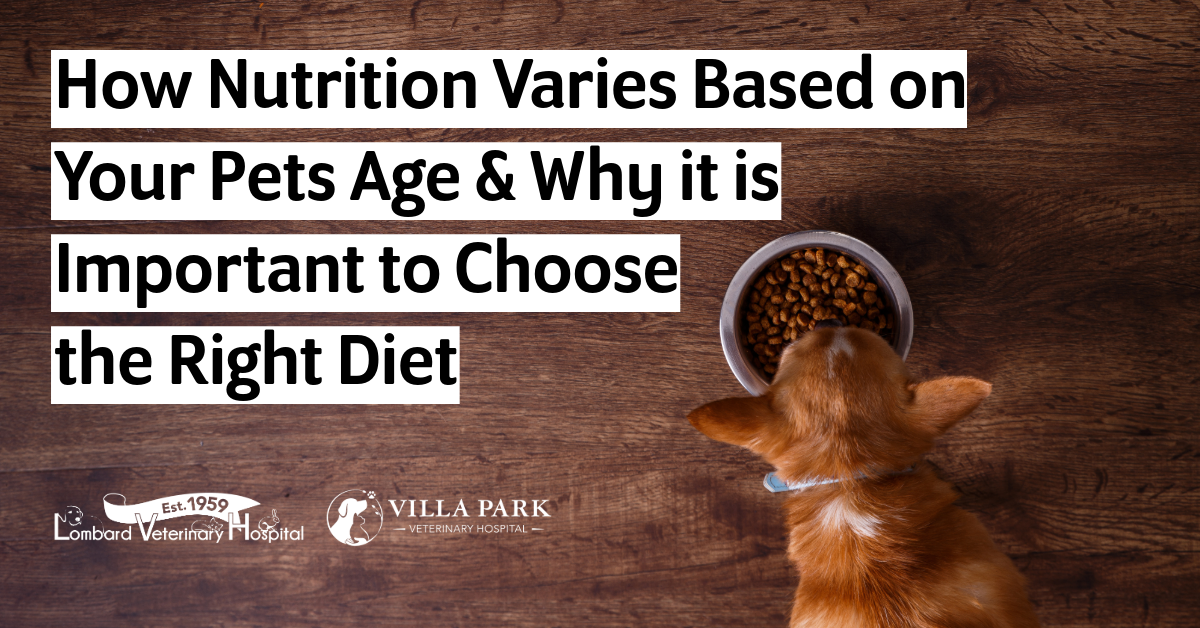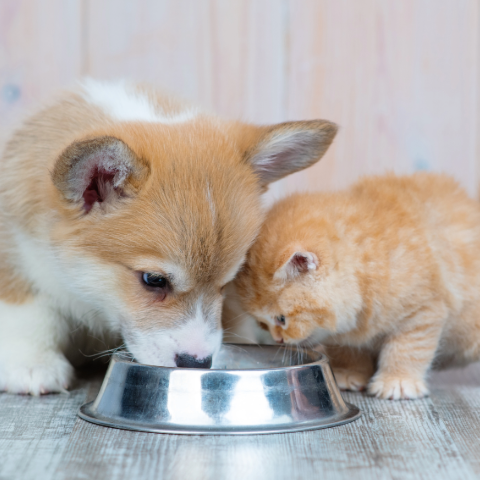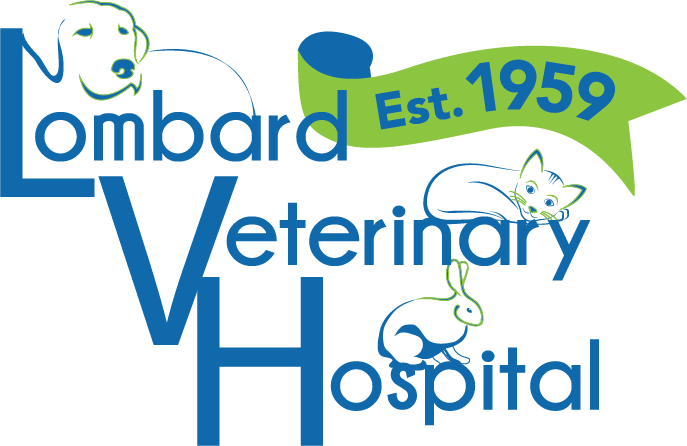
Have you ever wondered the difference between a puppy/kitten, adult, senior, and all-life stage food? We wanted to walk you through all of the variations and explain why it is important to feed your pet the correct diet for their life stage.
Puppy and Kitten Stage
Puppy and kitten diets are more energy-dense than adult diets because growing animals require an increased number of calories. Young animals require a diet that is complete, balanced, and formulated for "growth". They have specific needs for amino acids, vitamins, and minerals so their diets are formulated to have sufficient amounts of each. Calcium and phosphorus and especially important for bone growth so these diets help ensure they are getting the correct amounts. Growing puppy diets that specify "large breed" have gone through feeding trials using dogs that are < 70 lbs to determine that this food is sufficient for supporting the growth of large breed puppies. Typically lower in calcium, phosphorus, and overall calories because the puppy will be eating a much higher quantity than a small breed puppy. Growth diets should be fed until the dog reaches 80% of their adult weight, for small and medium breed dogs this is around 12 months of age, for large and giant breed dogs this is around 18-24 months of age. You can continue to feed a puppy diet after these ages, but it may lead to obesity as puppy foods tend to be more calorie-dense. Growth diets for cats are typically fed until about a year of age unless there are specific breed recommendations. 
Adult Stage
Adult diets help your pet maintain a healthy weight because adult pets generally need fewer calories daily compared to growing animals. Adult diets are formulated to support healthy skin, fur, and teeth, and support their everyday nutritional needs. The diet should fulfill their energy requirements while keeping them lean and trim at a body condition score of around 4/9 or 5/9.
Senior Stage
There are currently no guidelines in place requiring senior pets to transition to a senior diet at a specific age. Generally, cats are considered senior at 10 years of age. Small dogs are considered senior around 11 to 12 years old. Medium-sized dogs are considered senior around 10 years of age. Large breed dogs are considered seniors around 8 years of age.
All Life Stages
These diets meet the minimum requirements for each life stage. We do not recommend feeding an "all life stage" food to any age pet because they will not meet the ideal requirements for any life stage. Look for the Nutritional Adequacy Statement to determine what life stage food is for, rather than basing this on the name of the food. Remember that every dog is different and certain dogs will require different nutrient needs, consult with your veterinarian to ensure the food you have picked is a good option.
